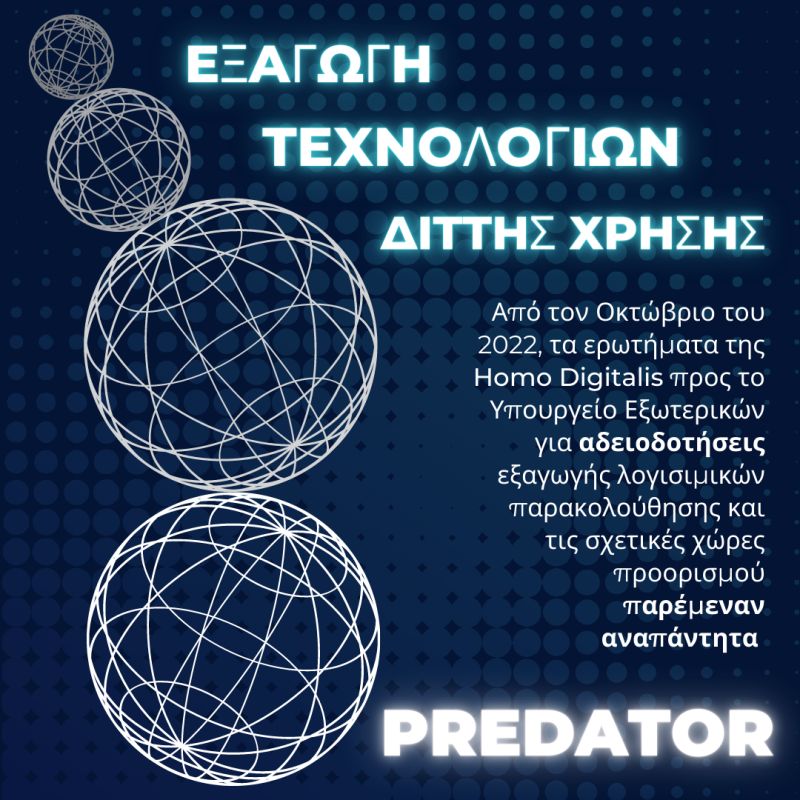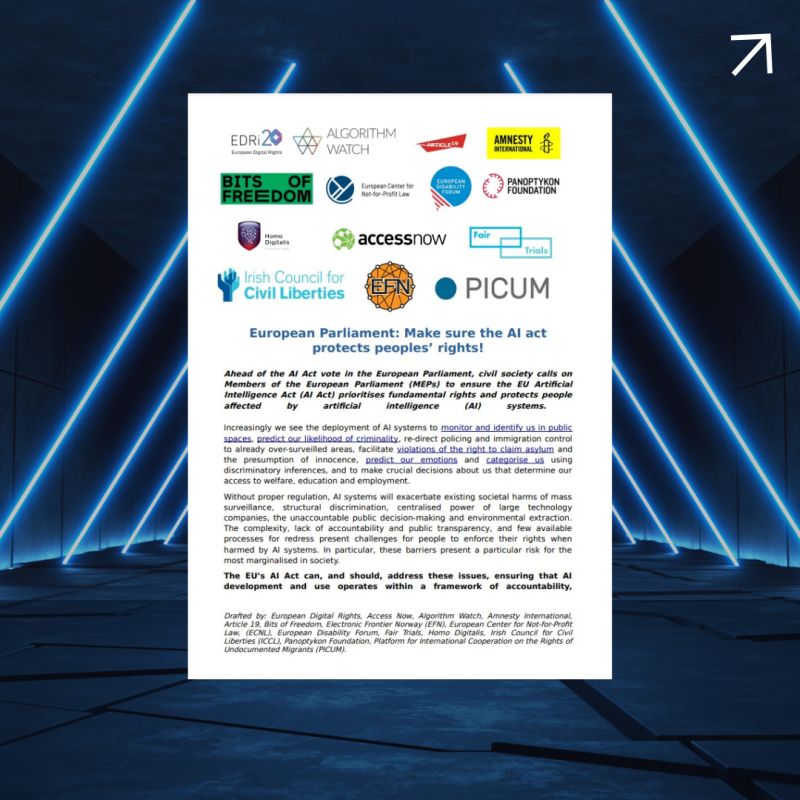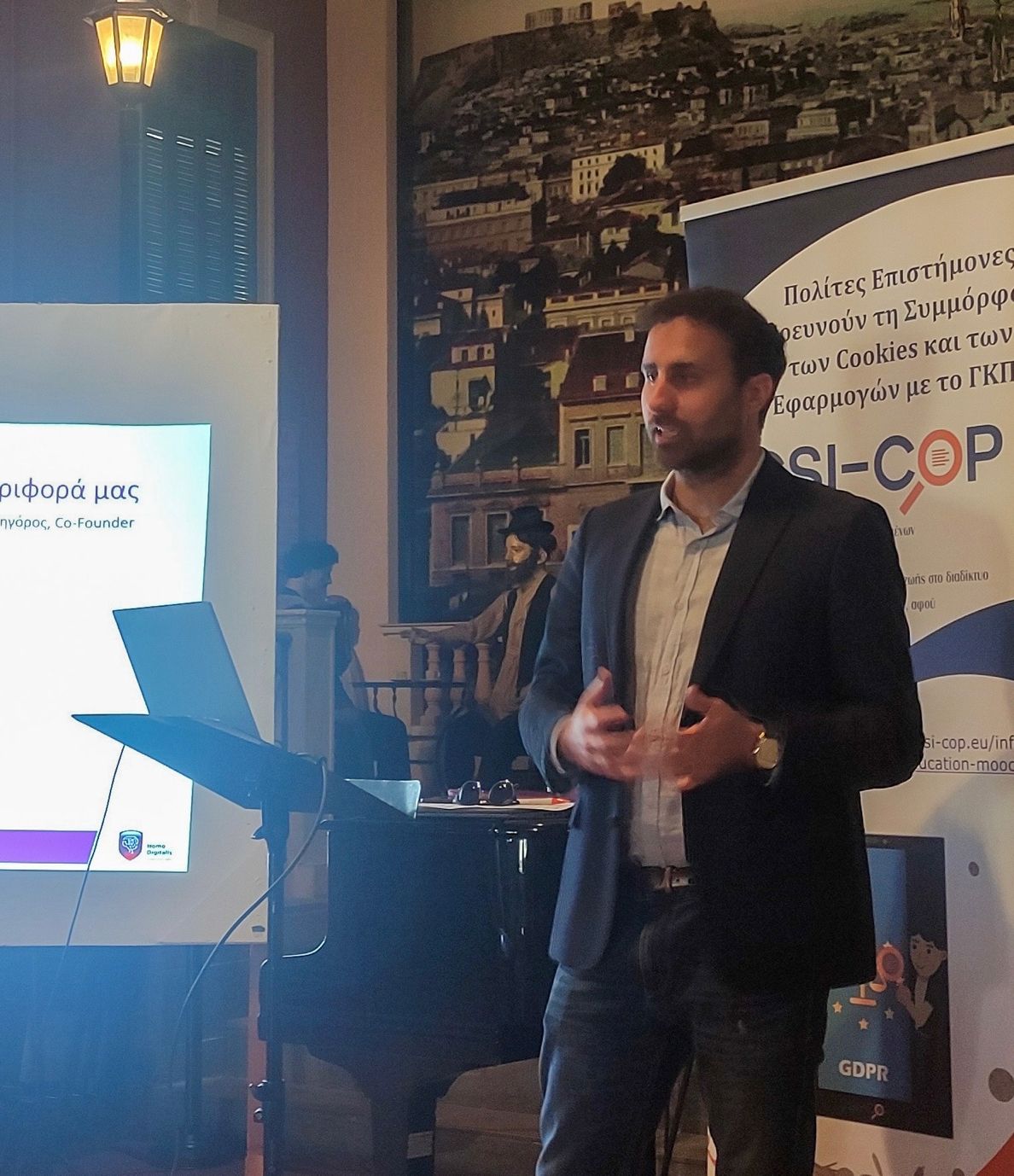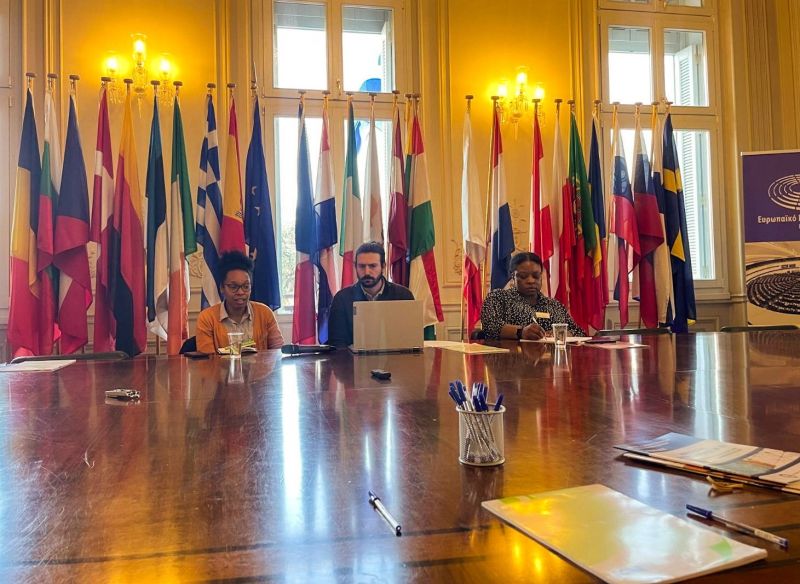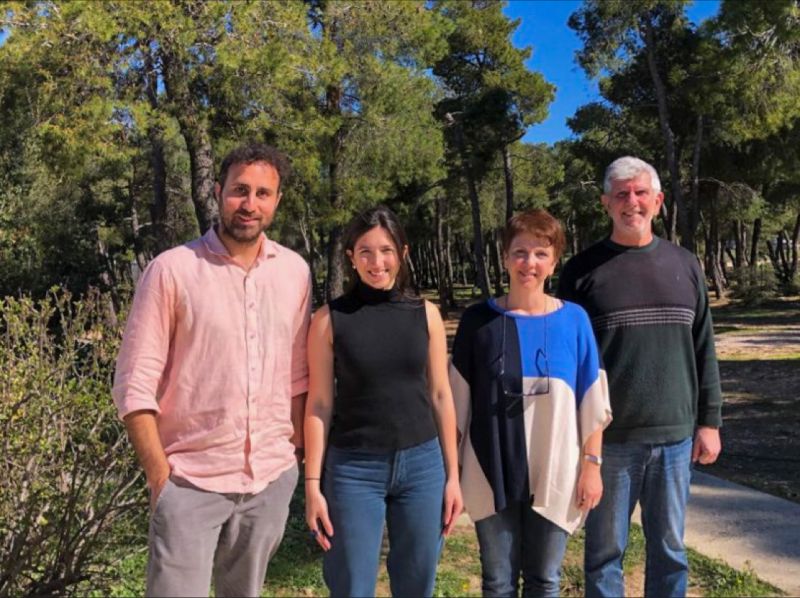Our speech at the Infocom Security Conference on Artificial Intelligence, Personal Data and Cybersecurity
For yet another year, Homo Digitalis has the great pleasure to be present at the Infocom Security Conference! The 13th edition of the conference, which is a benchmark in the field of information technologies in Greece, will take place on April 26 & 27 at the Athens Conservatory.
Our member, Dimitris Dosas, Infrastructure and Security Engineer will represent us in the 3rd session of the 1st day of the conference in the discussion panel “ArtificialIntelligence – CyberSecurity – DataProtection. where participants will highlight all the challenges and aspects related to AI and its correlation with security and privacy.
The panel includes leading experts, moderated by the excellent Vassilis Vassilopoulos, Journalist & DPO of ERT.
-Iliana Kostis Lawyer, PhD, University of Athens, Greece. Aegean Lawyer, PhD in Personal Data and Artificial Intelligence,
-Athanasios Kosmopoulos – Data Protection Officer of the Ministry of Digital Governance, National Representative at the European Cybersecurity Competence Center,
-Spyros Tassis, President of the Hellenic Association for Data Protection and Privacy (HADPP), and
-Leonidas Kanellos – President DPO Network.
We would like to thank the organizers for their kind invitation! You can register for free and learn more, here.
The Ministry of Foreign Affairs does not respond to Homo Digitalis on PREDATOR
On 11 October 2022, Homo Digitalis submitted a request to the Directorate for Multilateral Economic Relations and Trade Policy of the General Secretariat for International Economic Relations and Externalisation of the Ministry of Foreign Affairs.
We sought information on the approval/rejection of dual-use technology export license requests, as well as the country of destination of the end user. It was a strategic action in order to find out with statistical data whether technologies such as PREDATOR had been given the green light for export by the Greek authorities.
We received no response to our request, despite the fact that European legislation, and in particular Article 23 of Regulation 2021/821, provides for the keeping of relevant statistical data by the competent authorities of the Member States.
On 30 November 2022, a months-long investigation, the result of Inside Story.’s collaboration with the investigative journalism organisation Lighthouse Reports and the Israeli newspaper Haaretz brings to light that an aircraft linked to the Israeli PREDATOR tycoon delivered surveillance technology to notorious paramilitaries in Sudan in May 2022.
Yesterday, the deputy foreign minister said in a radio interview with Real FM that “”The export license given to Predator and Sudan has nothing to do with the civil war. The civil war was not caused by it.”
Joint Letter to the European Parliament on the AI Act
The European Parliament is preparing to vote on the proposed legislation on artificial intelligence #AIAct.
In a joint letter today, European Digital Rights and 75 other organisations, including Homo Digitalis, are sending a clear message to protect Human Rights and call on MEPs to pay due attention to the problematic provisions of the proposed text!
In order to do so, MEPs will have to vote:
-to strengthen the framework for the protection of Human Rights,
-on specific accountability and transparency obligations regarding the use of artificial intelligence systems,
-for a ban on the use of AI systems that pose unacceptable risks to the protection of everyone’s rights!
You can read the joint letter here.
Don't miss the event on AI and migration
The agenda for the upcoming #ProtectNotSurveil webinar organized by Access Now, Platform for Undocumented Migrants (PICUM), and the Border Violence Monitoring Network is ready!
Don’t forget to register in order to learn more about AI, the proposed legislation at the European level, and its provisions related to the border management sector here.
You will have the pleasure of attending a unique line-up of speakers, including Petra Molnar (Refugee Law Lab) Alyna Smith (PICUM), Anna Colaps (EDPS), Hope Barker (BVMN) and Sarah Chander (European Digital Rights)
Find out more here.
Can Education & Games in the Easter holiday go together? Yes!
The great ancient Greek philosopher Plato was the first to understand the importance of the internet, saying that “The internet is becoming the central square for the global village of tomorrow”.
Hmm…probably not! Do you easily believe everything you read on the internet without cross checking it out?
Over the Easter holidays, play 3 educational games on your computer or tablet with family and friends to learn how misinformation works in the digital environment.
1.Fake or Real – News Edition
2.Doublecheck
3.Deepfake Lab
These games have been developed in the context of the awareness exhibition #TheGlassRoom – The Misinformation Edition, which has been created by Tactical Tech and which has been successfully brought to Greece by the organizations (in alphabetical order) Digital Detox Experience, Homo Digitalis and Open Lab Athens.
Many thanks to our network of volunteers who pro bono translated the content of the educational games into Greek.
Our Educational Talk at the University of Patras on Artificial Intelligence & Dark Patterns
Today, Stergios Konstantinou and Konstantinos Kakavoulis spoke at the CSI-COP project of the University of Patras on the processing of citizens’ data by AI and the influence of Dark Patterns on our online behaviour.
The event was attended by renowned data protection professionals, University professors, researchers and members of the Data Protection Authority.
Our participation in the summit "This Is What Police Tech Looks Like" of the JET Table of LSE in Belgrade
Last week, Homo Digitalis was in Belgrade to be present at the working groups held as part of the “This Is What Police Tech Looks Like” project, organised by the JET Table at The London School of Economics and Political Science (LSE).
It was a unique opportunity to meet with academics, activists and civil society organisations working in the fields of policing and border management, to exchange ideas and views, and to talk about our related activities! We would like to thank the organizers for their kind invitation!
Over the last four years, we and our partners have had open cases before the Data Protection Authority in these areas, involving:
1) the retention of electronic communications metadata that is contrary to the case law of the CJEU and the provisions of the Charter of Fundamental Rights (August 2019),
2) the procurement by the Hellenic Police of facial recognition technologies (March 2020),
3) the illegal retention of biometric passport data by the Hellenic Police in a central database (June 2020),
4) the violation of the provisions on the use of cameras by the EL.AS. in public places (May 2021),
5) the procurement of the intervention systems YPERION and KENTAYROS by the Ministry of Immigration and Asylum (February 2022); and
6) the procurement of social media platform monitoring software by the Coast Guard (February 2022).
We are honoured by the interest shown in our actions and we look forward to the immediate decisions of the DPAA on the above cases, which are of paramount importance for the protection of our Rights and Freedoms, as well as of the Republic.
You can learn more about the program here.
Homo Digitalis was represented at the meeting by our Board Secretary, Eleftherios Chelioudakis.
Our educational talk on AI & border management
Last month, we received an invitation from the Greek Council for Refugees and the European Network Against Racism Aisbl (ENAR) to speak at the European Parliament Office in Greece about Homo Digitalis’ actions in the field of migration and border management, as well as about the relevant provisions of the proposed EU regulation on AI!
It was a great pleasure to exchange ideas and views with representatives of CSOs, journalists, academics and other stakeholders who were present as well as to discuss the #ProtectNotSurveil campaign of European Digital Rights, Access Now, Platform for Undocumented Migrants (PICUM) and Refugee Law Lab, of which we are members!
We would like to thank the organizers for the great cooperation! Our Board Secretary, Eleftherios Chelioudakis, represented us, presenting our work at the event.
You can learn more about the #ProtectNotSurveil Campaign here.
Educational Presentation at the Tositsio Arsakeio of Ekali
On Monday, Alkmini Gianni and Konstantinos Kakavoulis were at the Tositsio Arsakeio of Ekali.
They spoke with the students of the 2nd grade about the “Digital Footprint” and the rights we have to gain control over it.
We would like to thank our member, Alexandra Ziaka, and the school management for the excellent organization and reception.
Homo Digitalis’ informative actions in schools all over Greece continue!

